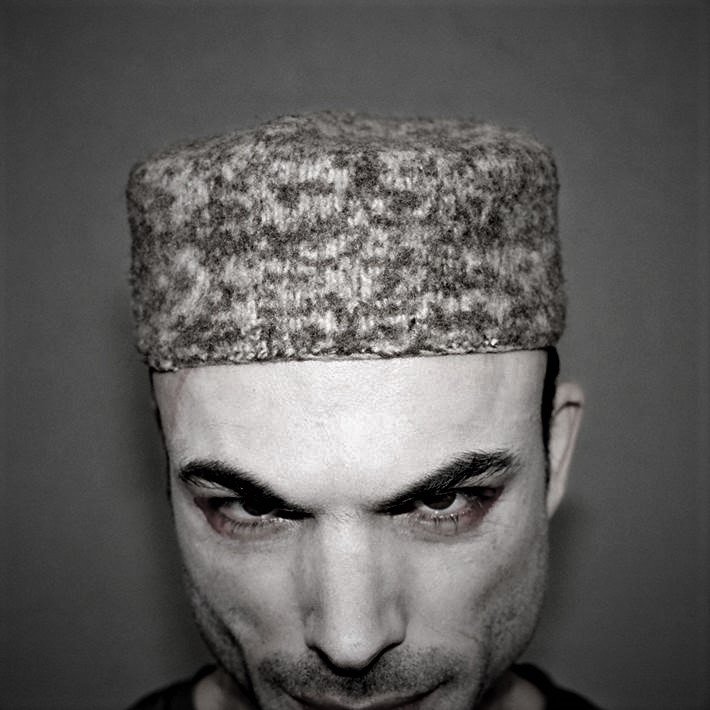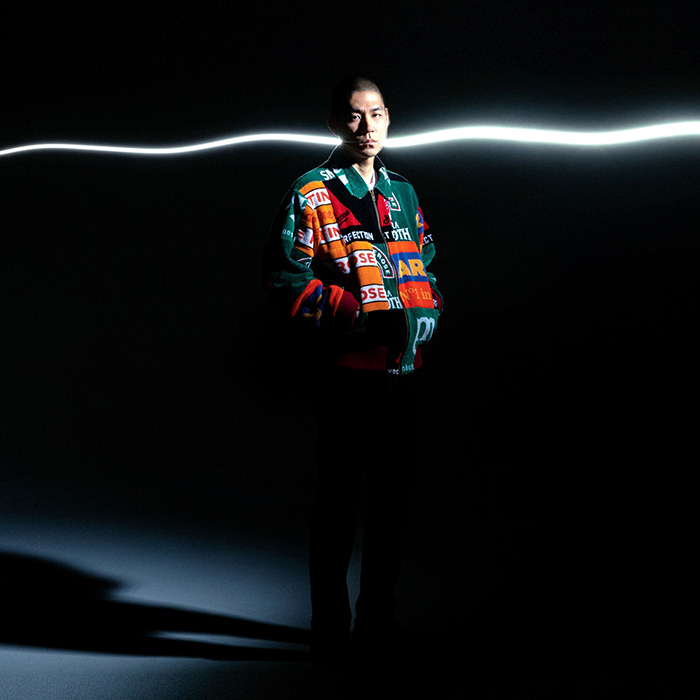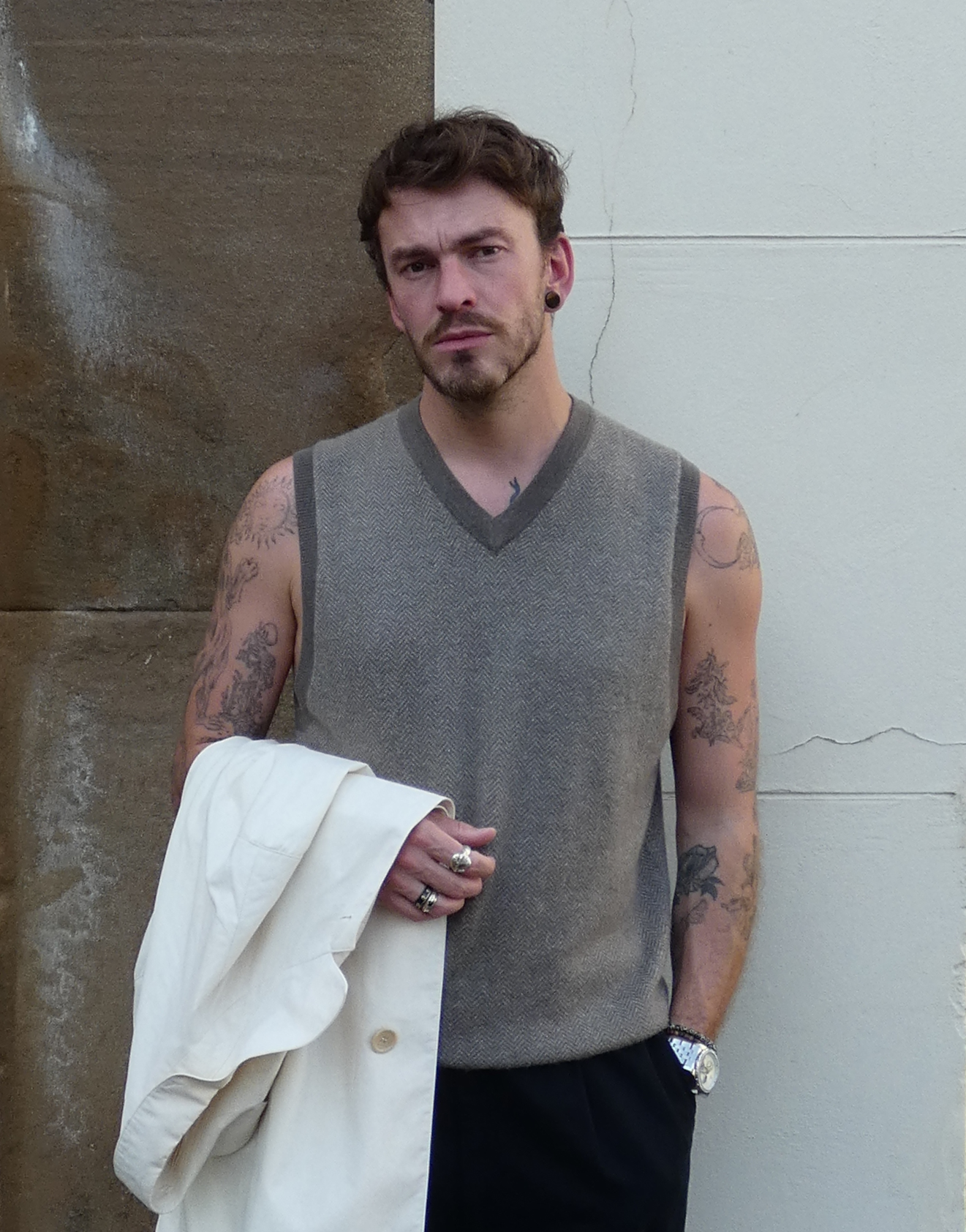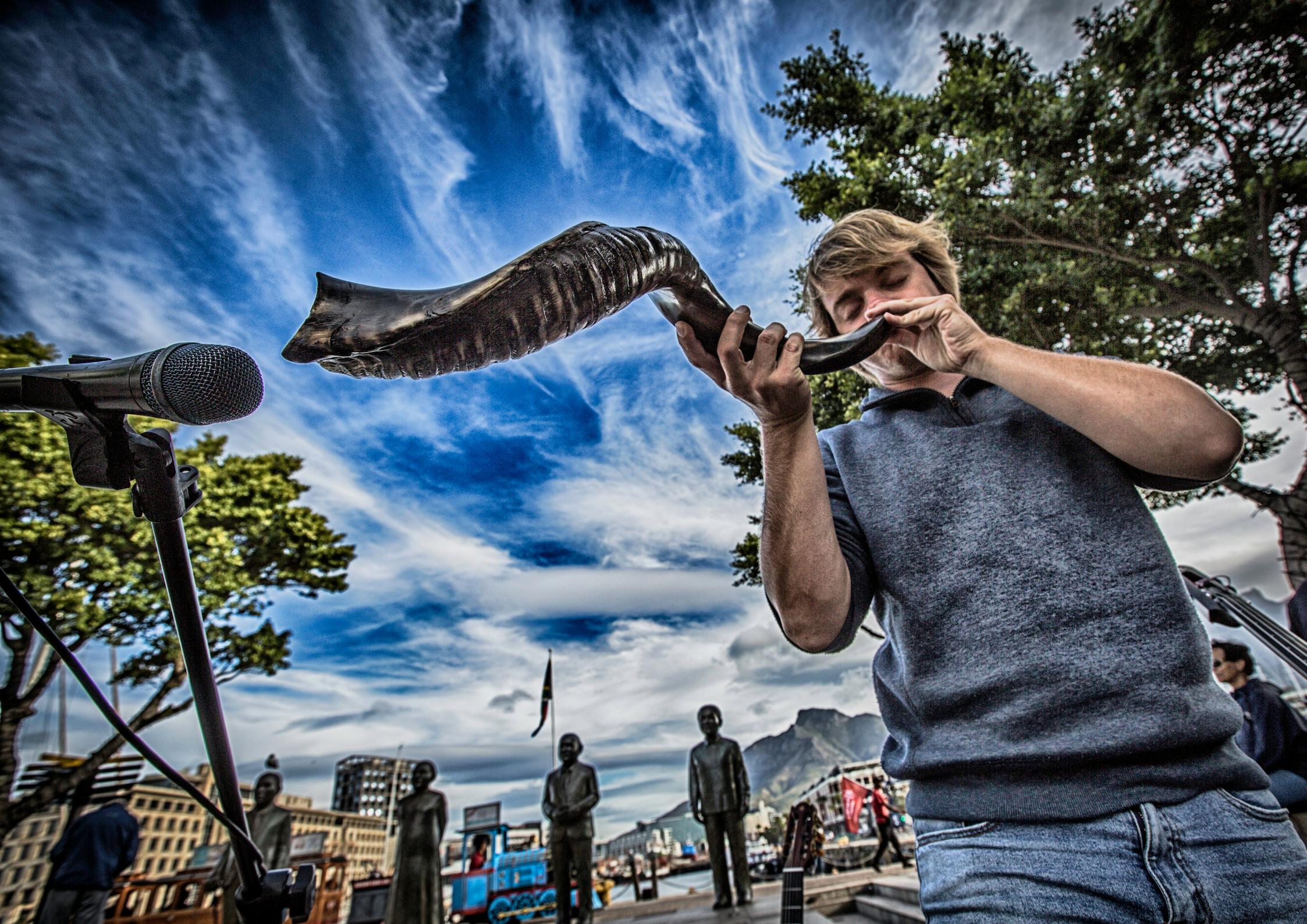EXCLUSIVE INTERVIEW: 5 Minutes With… Joakim
Parisian DJ and producer Joakim Bouaziz, who will release a new album, Samurai, on Tigersushi and Because Music on March 17th, is a fiercely independent musician carving out a unique and interesting niche in the electronic music scene. Preview material from Samurai has been promising, highlighting Joakim’s penchant for creatively mixing disparate styles and tones together to create new, exciting listening experiences. A playful video for “Numb”, directed by Adrian Yu, it is a parody of YouTube make-up videos, and sees Joakim straight-facedly telling the viewer that he is going to show them a technique called “numb”, because he “doesn’t really feel [himself] without it.” The video then performs a cheeky, strangely enthralling version of the ‘one-take’ video, as we watch Joakim be made up in full Kabuki ‘war paint’. Meanwhile, the album’s recently-released title track is a laid-back and assured mash-up of traditional Japanese sounds and rhythms and cool, loungy electro.
We caught up with the talented Joakim to chat about freedom, Paris, and why DJing to a crowd is better when they’re on ecstasy…
Do you see yourself as being part of any particular musical scene? Your independence as an artist seems quite important to you…
Yes, independence is freedom and I’m obsessed with freedom. So it’s quite hard for me to feel attached to a scene. At one point when I started making music I was being associated with the Nu Jazz scene from the late 90s/early 2000s, and that freaked me out. Although I liked some of the early stuff from that scene, being labeled felt like a little death to me, as if i was told “Okay, that’s who you are and here’s what you’re supposed to do.” But I want to try so many things, so I run away from tags as much as I can, sometimes to my big disadvantage because the way this “industry” works (like all other industries in our late capitalist system) is that you need things clearly labeled to be marketed, and it doesn’t work so well with me. People who don’t know me well always wonder what’s my deal.
Do genre labels mean anything to you, in terms of composition? You cite such a wide range of influences – from electro to soul, funk, even Delta blues and traditional Japanese music – do you feel like these sounds belong ‘in boxes’, or do you enjoy mixing them together more freely?
I understand the need for genre labels as a way to sort music out, create a map, be able to communicate with others, I use these terms a lot, I also invent genres for my DJ music library, tagging music is a big part of the DJ process now with USB sticks. But having genres doesn’t mean they can’t be mixed: as a matter of fact, every genre is the result of a mix, even the most ancient traditional music styles come from a mix of various influences and transformations. Also, every genre has its own musical qualities, and conveys its own specific emotions, philosophy and references. My goal is to try to create new languages through combinations, new genres through those mixes – a bit like an alchemist.
Jean-Michel Jarre once said, “I would say that rock and roll was born in America and invaded the world. And electronic music was born in Europe and invaded the world.” What are your thoughts on this statement, especially as an artist who has worked and produced in New York?
Hmm, I’m not super convinced by that… Maybe it’s a way for him to say, “I invented electronic music!” There was a lot of early electronic experimentation in the US in the 50s, in the radiophonic labs, and you had Don Buchla of Moog create one of the first modular voltage-controlled synthesizers. You had Silver Apples in the 60s. Of course, in Europe, Kraftwerk made electronic music mainstream for the first time probably (and also created this whole imagery around it, to go back to my first point about marketing…), and therefore you have this idea that it started in Europe but I think the truth is way more complicated than that.
Tell us a bit about what motivated you to start Tigersushi, and what you hope it will someday be remembered for.
I started Tigersushi because I didn’t think I could make a living from only making music. It wasn’t a label in the beginning, by the way – it was an attempt to do Discogs + Spotify like 20 years ago. It was supposed to make me a millionaire, but I totally failed… But then it became a label and I kept doing it until now because I love interacting with other musicians and discovering new talents, and it also provides a channel for my own releases if I want it. I don’t need to wait for another label to tell me what I can do.
You once said in an interview that, when you DJ, you “like a crowd on ecstasy.” For those who have never performed as a DJ – or maybe for those who do not appreciate what good DJs really do – can you try to describe the challenge to our readers? What must the DJ get right to create magic in the crowd?
Yeah, I said that because one important thing, when you’re in the crowd, is to let go and dive into the music without the self-consciousness filter – without thinking too much about “Do I like this?” “What is this music?” “How should I dance?” “How do I look?” etc. Somehow, certain drugs can help get to that stage by increasing the thrill of the senses, although I think you can reach that state without any drugs. I don’t do drugs, but when I play to a dance floor on ecstasy I can feel it, like I’m with them. As the DJ, you’re like a chairman, you’re there to guide people through a journey, but they have to agree to come with you, so you also need to take their hand and lead them through the first steps of that path. Then, if the DJ is good and they have a connection with the crowd, you can go almost wherever you want with the music.That’s how I see it. It’s all about communicating with the crowd, in both directions. Some DJs are just playing for themselves, not paying attention to the crowd and some other DJs only play to please the crowd. Both approaches are wrong. When you get into that symbiotic state with the crowd, it’s totally magical.
There is (or at least used to be) a culture in Paris of writers, musicians, philosophers, etc. having strong voices in society. Do you feel as though your music is ‘saying something’? Do you think that musicians should add their voices to social conversations?
I don’t think my music is saying something on a political level per se, but I want to believe that my political statement comes through my practice. I believe in everyday life resistance, the way you live and work are incremental means of society changes. I try not to compromise, do things my way, totally independently, not listening to the sirens of marketing and easy success. I recognise being able to do this is also a privilege. I believe that by just being true to your art, you are having a voice in society. Then, when an artist becomes famous, you have a lot of people who follow them on social media and that’s also a space where they can have a voice, be an amplifier of what they believe in. It doesn’t mean it all has to be in the music.
Finally, how are you feeling about 2017? How do you think musicians will be affected by the confusion and political upheaval that the world is currently experiencing?
Definitely, we live in extremely confusing times. I think it’s a big turning point, there’s a decay of the Western world coinciding with the ever-growing globalism and instant “information” overflow that creates extreme reactions, confusion, frustration, and as a result everything is getting super polarised. I live in New York City, and every time I look at the media or Twitter I get so angry and literally scared, especially as a foreigner. I’m only hoping that this deep crisis will have positive consequences and that no one will give up resisting the bigotry and idiocracy taking over the Western world. Few things scare me more than stupidity and ignorance. Musicians should be the voice of tolerance, inclusion, multiculturalism, truth and the fight against simplification, because music is probably the most culturally mixed and universal medium in art.




Leave a Reply